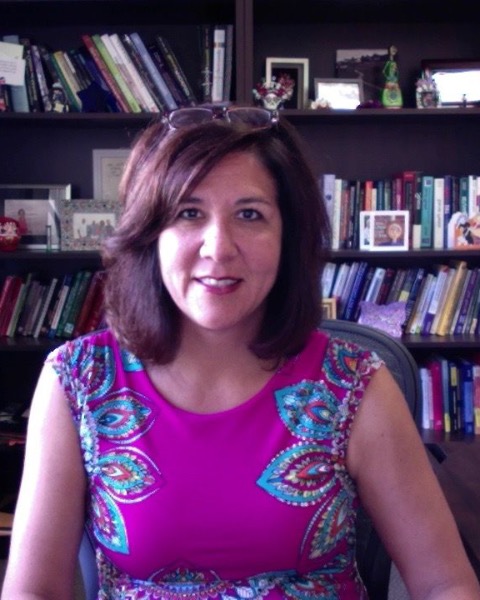Symposia
Technology
4 - (SYM 70) Reductions in Stress, Anxiety, and Depression in a Randomized Controlled Trial of a Self-guided, App-based Mindfulness Meditation for People of Color Who Experience Discrimination
- GR
Giovanni Ramos, Ph.D. (he/him/his)
Graduate Student
University of California, Irvine
Los Angeles, California - AM
Amanda Montoya, Ph.D.
Assistant Professor
UCLA
Los Angeles, California - AA
Adrian Aguilera, Ph.D.
Associate Professor
University of California, Berkeley
Berkeley, California - AL
Anna Lau, PhD
Professor
UCLA
Los Angeles, California - CW
Chu Yin Wen, B.A.
UX Researcher
UCLA
Los Angeles, California 
Denise Chavira, Ph.D.
Professor
University of California Los Angeles
Los Angeles, California
Speaker(s)
Co-author(s)
Background: People of color (POC) who experience discrimination are at risk of developing mental health problems, including high levels of stress, anxiety, and depression. Mindfulness meditation (MM) may be especially well suited to help POC cope. However, MM rarely reaches POC, and digital approaches could reduce this treatment gap by addressing traditional barriers to care, such as limited access to mental health providers, financial and transportation burden, and stigma. This randomized controlled trial tested the feasibility and effectiveness of a self-guided, app-based MM program for POC who experience elevated levels of discrimination.
Methods: Participants (n = 155, Mage = 27.28, 39% Latinx, 37% Asian, 12% Black, 10% Multiracial, 2% Native American) who scored in the >75th percentile of the US-normed Multicultural Discrimination Module were assigned to either the intervention group (n = 80) or a wait-list control condition (n = 75), using block randomization and completing assessments at baseline (week 0), mid-treatment (week 2), and post-treatment (week 4). Those in the intervention group used the 10% Happier app to complete at least one meditation daily for approximately 10 minutes for four weeks. We used multilevel modeling in intention-to-treat analyses to examine mean differences between groups.
Results: Compared with individuals in the control group, those who received the MM app experienced greater reductions in stress from baseline to mid-treatment (b = -0.210, t(306) = -2.50, p = .012, pseudo-R2 = .41) and from baseline to post-treatment (b = -0.364, t(306) = -367, p < .001, pseudo-R2 = .41), anxiety from baseline to mid-treatment (b = -0.291, t(306) = -2.90, p = .003, pseudo-R2 = .45) and from baseline to post-treatment (b = -0.414, t(306) = -3.66, p < .001, pseudo-R2 = .45), and depression from baseline to mid-treatment (b = -0.179, t(306) = -2.19, p = .028, pseudo-R2 = .53) and from baseline to post-treatment (b = -0.280, t(306) = -2.98, p = .003, pseudo-R2 = .53). There were no statistically significant reductions in symptoms from mid-treatment to post-treatment.
Conclusion: Among POC, self-guided, app-based MM seems to be an effective intervention to reduce mental health symptoms associated with experiencing discriminatory treatment. Thus, this low-intensity intervention holds promise to make mental health care more widely available for this marginalized and at-risk population.

